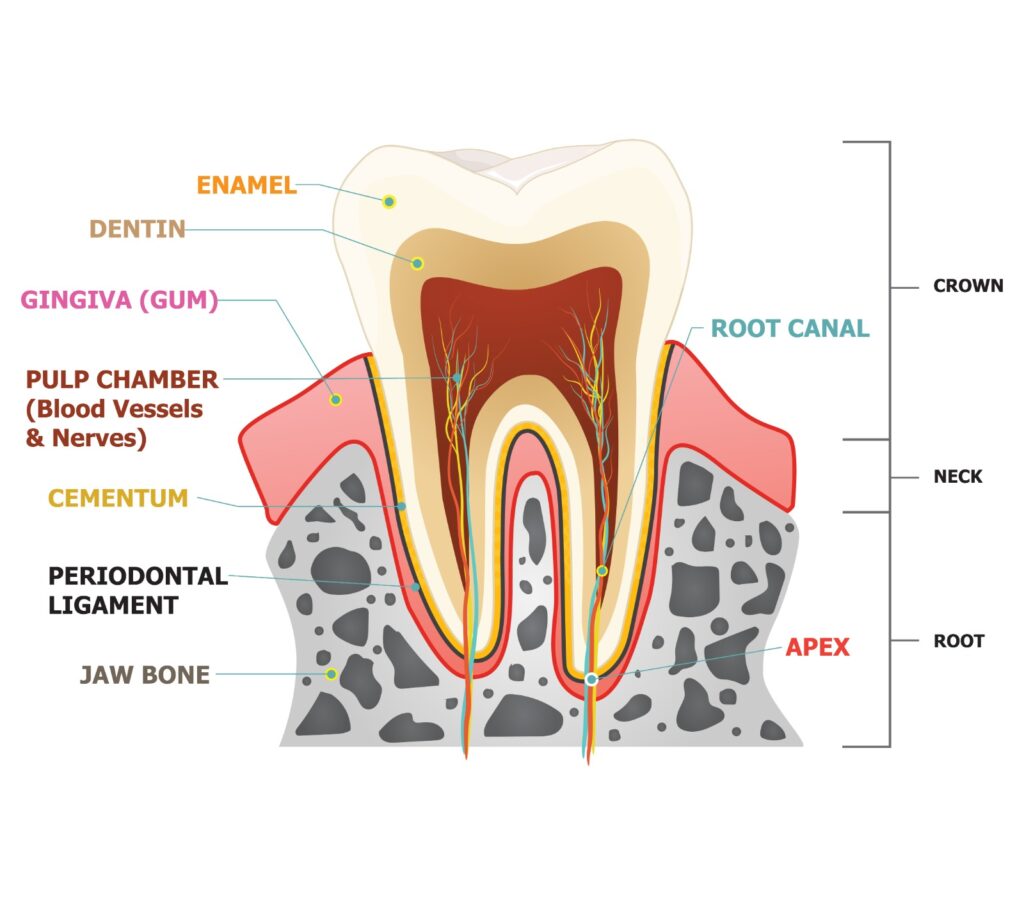A toothache can sometimes be a sign of more than just a common cavity. It might indicate that your tooth actually needs a root canal to be saved before further damage or infection occurs. Recognizing the signs of a root canal will allow you to take necessary precautions in time, preventing the issue from worsening. This blog highlights ten clear signs of a root canal so you can better care for and protect your dental health effectively.
1. Terrible Toothache: A Key Sign of a Root Canal
One of the most obvious signs of a root canal is severe, persistent dental pain. When the pain is sharp and happens upon chewing or applying pressure, it could be due to a deep infection inside the tooth. This kind of pain is not self-resolving, and waiting too long may create more issues. Seeing your dentist may help address the matter before any further problems develop, making it crucial to recognize the signs of a root canal early.
2. Acute Sensitivity to Hot and Cold
Another sign of a root canal is sharp, lingering sensitivity to hot or cold food or drinks. If your sensitivity persists after the hot or cold item is removed, it’s a likely indicator of nerve damage in your tooth. This prolonged response to temperature usually signals a compromised nerve, making a root canal necessary. Ignoring this sign of a root canal can worsen the damage, as it shows your tooth’s health is already compromised.
3. Chipped or Cracked Tooth
A chipped or cracked tooth is one of the common signs of a root canal requirement. A break in the tooth allows bacteria to enter through the layers, potentially leading to infection. Even small chips can provide an entry point for bacteria that cause serious damage inside the tooth. Pain or sensitivity is often associated with this damage. If not treated promptly, a root canal is usually needed to clean the inside of the tooth and prevent further infection—making it one of the tell-tale signs of a root canal.
4. Discolored Tooth
If you notice a tooth suddenly becoming darker, this is a strong sign of a root canal. A discolored tooth often indicates internal damage, where the pulp inside the tooth is either infected or dying. Unlike external stains caused by food or drinks, this sign of a root canal points to deeper problems within the tooth. A root canal can remove the damaged tissue and restore the tooth’s health and appearance, helping you avoid further complications.
5. Swollen Gum Tissue in One Area
Swollen or inflamed gums surrounding a specific tooth could be another clear sign of a root canal. This swelling is often tender and sometimes uneven, possibly indicating an abscess, which signals infection in the tooth’s root. Ignoring this sign of a root canal could lead to the infection spreading to other teeth or into your gums. A root canal will eliminate the infection, reducing the swelling and stopping the problem from worsening.
6. Deep Cavity Near the Pulp
A deep cavity close to the pulp is a significant sign of a root canal being necessary. Even if the cavity hasn’t caused noticeable discomfort, infection can spread rapidly if left untreated. Recognizing this early sign of a root canal and seeking prompt intervention can save your tooth from extraction. A root canal removes the infection, protecting the remaining tooth structure and preventing further damage.
7. Tooth Sensitivity When Chewing
If you experience sensitivity or pain when chewing, this is a possible sign of a root canal. The discomfort might be due to a deep infection affecting the tooth’s nerve or root. While chewing sensitivity can sometimes be dismissed as minor, it’s essential to consider it a warning and look out for other signs of a root canal to prevent more extensive damage.
8. A Pimple-Like Bump on the Gums
A small, pimple-like bump on your gums near the affected tooth is a less common but serious sign of a root canal. This bump, often referred to as a fistula, is an indicator of infection draining from the tooth. If you notice this bump alongside other signs of a root canal, it’s important to see your dentist immediately. Ignoring it could allow the infection to worsen and spread to other parts of the mouth.
9. Persistent Bad Breath
Persistent bad breath or an unpleasant taste in your mouth, even after brushing, could be a sign of a root canal. This symptom often indicates an infection inside the tooth that cannot be cleaned away with normal oral hygiene. If bad breath is combined with other signs of a root canal, like swelling or sensitivity, it’s time to visit your dentist for evaluation.
10. Tooth Mobility
A tooth that feels loose or moves slightly could be another sign of a root canal. Tooth mobility is often caused by infection weakening the surrounding tissues and supporting structures. Recognizing this sign of a root canal early is crucial for preventing tooth loss, as a root canal can save the tooth and restore its stability.
Conclusion
Tooth issues can arise unexpectedly, especially if you overlook key signs of a root canal. Symptoms such as severe pain, sensitivity, cracks, discoloration, swollen gums, or deep cavities may all indicate the need for a root canal to save your tooth. Ignoring these signs of a root canal can lead to more severe problems, including tooth loss. Stay vigilant and visit your dentist if you notice any of these signs of a root canal. Root canals are highly effective at restoring your tooth’s health and preventing further damage.
For professional care, contact us today to schedule an appointment if you notice any signs of a root canal.




